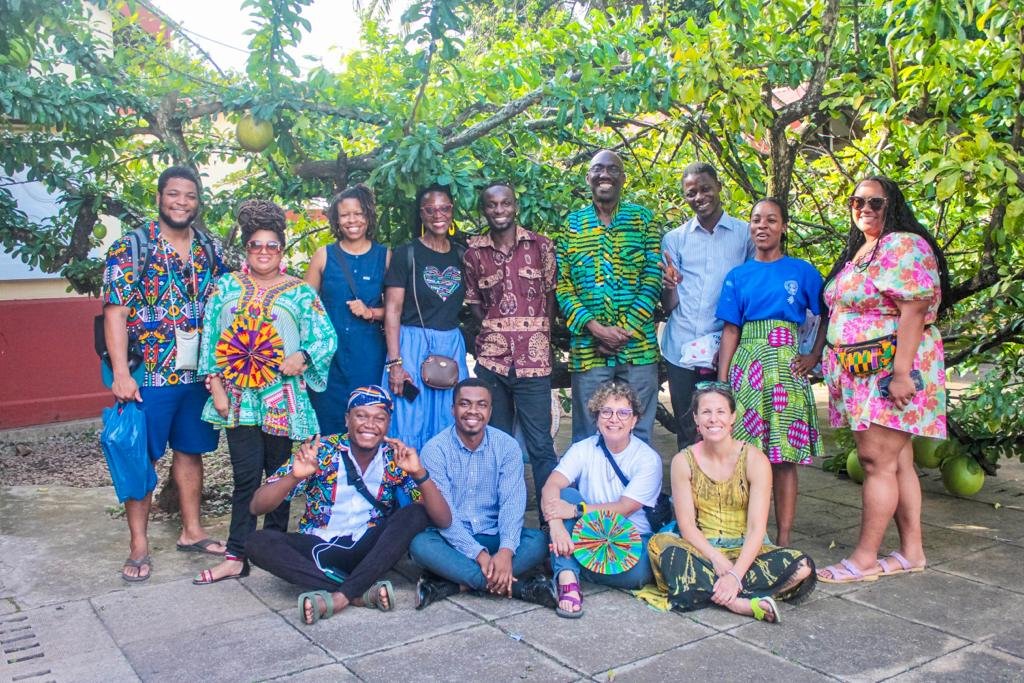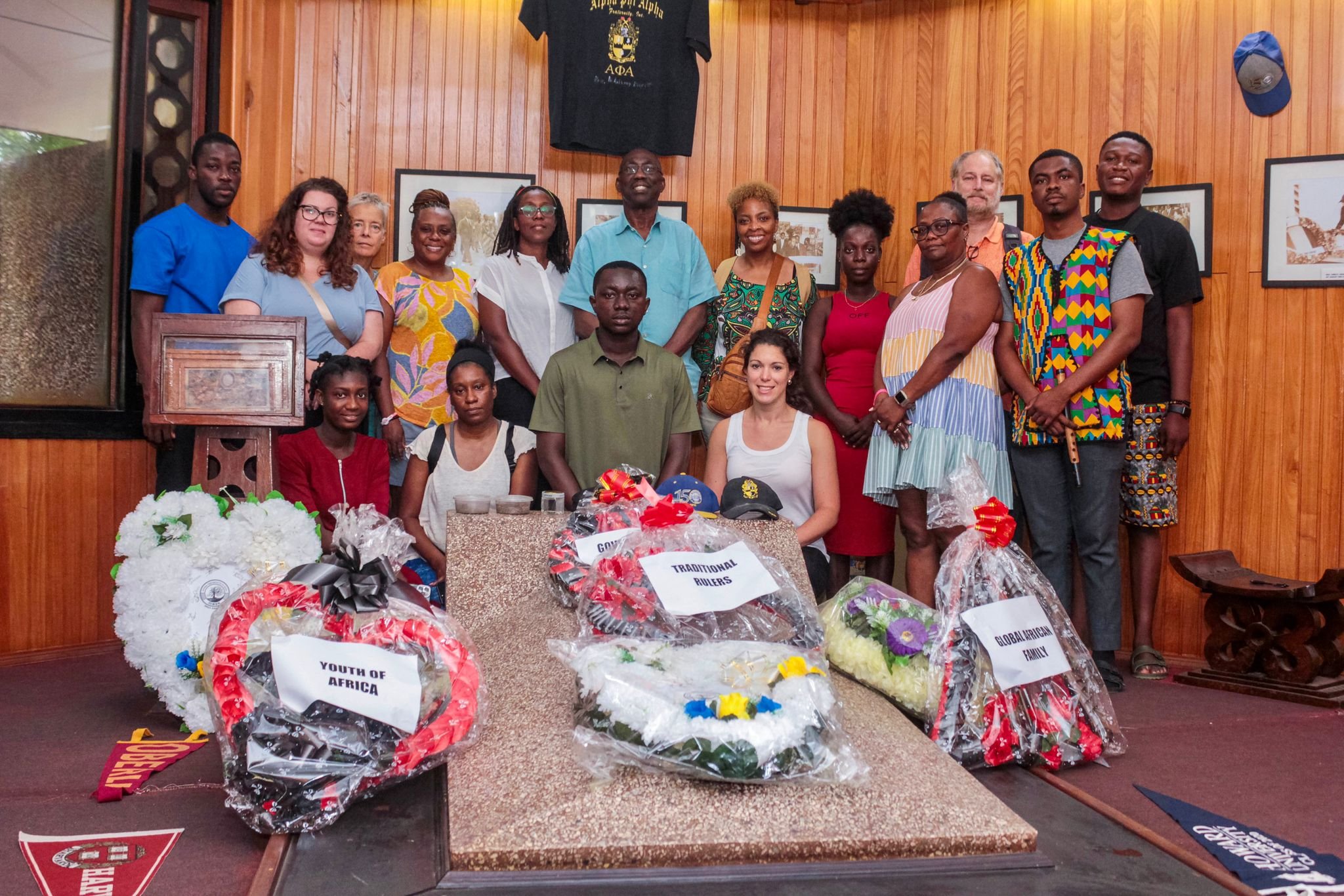The WTIG team officially concludes this year’s program in Ghana, and declares it a success. I thank the incredible leadership team of Elise Mott, Elizabeth Updike Cobblah and David Duane for the fantastic job they did. My gratitude also goes to Dela Awutey, Kwasi Agyei, Elizabeth Aikins and the team of learned instructors who taught with passion and optimism each time. Finally, to both Denkyem Mireku and Sankofa cohorts, I thank you from the bottom of my heart.
As I write to close out the season, it occurs to me that, as we age, we break and mend in many ways. If we are mindful, we observe our healing and our scars. We come to understand the importance of adversity and challenges. The greatest lessons are grasped during this dance of awareness, learning and repairing.
We have come to the end of two sessions of the Witness Tree Institute program of 2023. During these weeks 28 educators learned to hear differently, reflect differently, think differently and understand differently. During this period, it wasn’t the moments of familiarity, ease, comfort, certainty or assurance that created harmony, deeper learning or clarity. It was the toss and turn in meeting the unfamiliar that gave the most exposure and led to the most growth.
Each year as the WTIG program ends, I notice the following-the goodbyes are long, the conversations deepen and the richness of our experience grows as we think of our families, students, friends who await our stories. We notice the important lessons we learned through each other , and more importantly we begin to know ourselves better.
If experiential learning is to shape our lives, it has to be lived and examined further. It is because of the missteps, cultural and personal challenges, our fears and discomfort that we learned what we have learned. It is also because of our open-mindedness, determination, creativity, vulnerability and humility that we became better versions of ourselves as individuals and as a group.
Just like the art and process of Kintsugi, the Japanese art of piecing broken pottery shards back together with gold or silver, members of the WTIG cohorts embraced flaws, challenges, imperfections, and uncomfortable conversations. Like the potter, we worked with patience and awareness in order to emerge as a cohesive group.
I have learned that groups have a richer experience when individuals embrace differences and understand that when something breaks, if it is repaired with love and care, patience and understanding, like a Kintsugi vase, it is stronger at the broken places. And the process of repairing is also healing and satisfying.
We are leaving Ghana with cheerful hearts and curious minds. The work of engaging the questions you’ve wondered about will begin. Share your experiences with your communities, families and students. Let the underlying message include these-that we have more similarities as humans than not, that our individual and national histories are not the same, and if we learn from them and from each other we participate in a repair.
You have been witnesses to the glorious and dark past of Ghana, its rich culture, wisdom and people. You have shared yourself and received gracious space from strangers who are now friends.
Be a witness tree for good change, peace and understanding.
The past still has something to say.
Tete Cobblah, Director Witness Tree Institute of Ghana, Maynard Massachusetts



